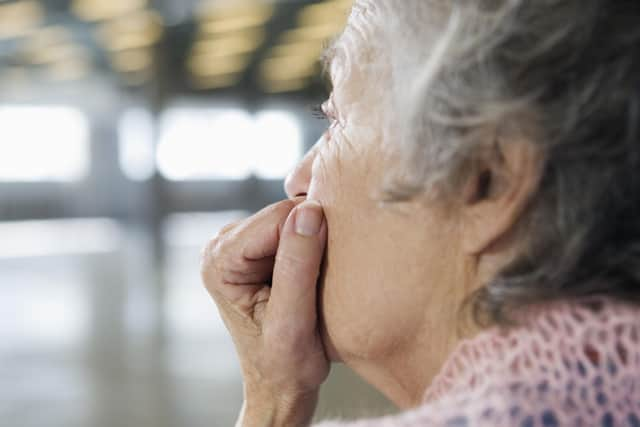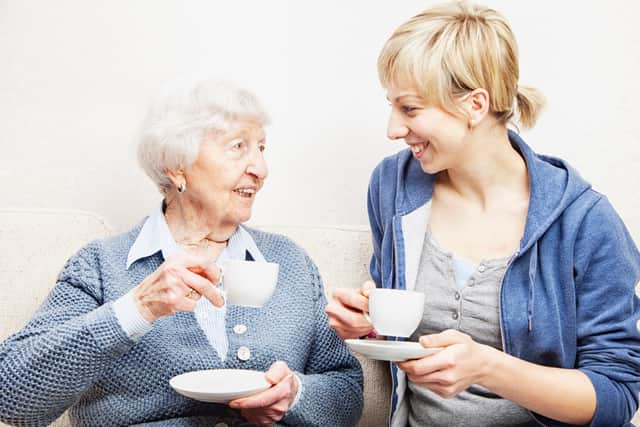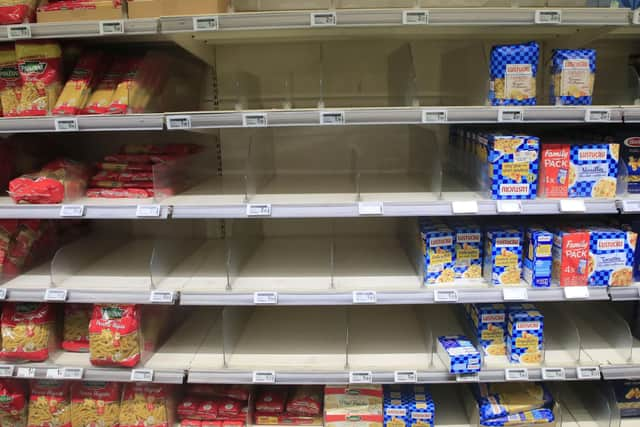Tips on dealing with coronavirus self-isolation from a home worker: Jayne Dowle
I’m no stranger to social isolation. I spend most days home alone, from 8.20am when the last member of my household goes off to school, until late afternoon when everyone troops back again.
As a freelance journalist, I talk to people on the phone, although often email, Twitter or text are the default methods of communication. That’s not always my choice. I do like to chat.
Advertisement
Hide AdAdvertisement
Hide AdNothing replaces the sound of a human voice. We should all remind ourselves of that, especially when it comes to keeping in touch with older relatives and neighbours, who may already be socially isolated.


Just a five-minute phone call can make a positive difference. More than half (51 per cent) of all people aged 75 and over in the UK live alone, according to the Campaign to End Loneliness.
And more than nine million of all ages – almost a fifth of the population – say they are always or often lonely. If that’s the situation now, how many will admit to the same if they are forced to take time off work and away from socialising to self-isolate?
I ring my parents around 11am when the first of my deadlines has been met to check that all is well with them. If my children need anything, they drop me a text.
Advertisement
Hide AdAdvertisement
Hide AdMostly though, I sit in silence, typing away. I don’t miss the hour-long commute to Huddersfield when I taught journalism part-time at the university. I don’t do networking or lunch, unless you count a bit of salad or bread and cheese. Always at 1pm, with the BBC news.


Routine is very important when you’re stuck at home; it’s the bones on which your day hangs. And unless there is a need for information, no television. Absolutely no television. I respect the fact that two-fifths of older people say the television is their main source of company, according to the Campaign to End Loneliness. Hence the argument to retain free television licences for this demographic.
However, it is important for us all to keep brains and bodies active. We often complain we have no time to read. Here it is. Or find a life-improving hobby; research your family tree online, learn to play chess, tidy every drawer and cupboard in the house (that’s what my mother plans to do).
People assume I must go out to meetings a lot. I don’t. I have no desire to spend valuable earning time making small-talk either. I’d rather take the dog for a walk to the top of the hill to enjoy the distant Pennine views, which I do if the latest storm is not howling in our faces.
Advertisement
Hide AdAdvertisement
Hide AdExercise and fresh air should not be forgotten. Isolation does not mean staying indoors with all the windows bolted shut. I’m no microbiologist, but I’d say that this would be a sure-fire way to incubate germs. It is easy to maintain a couple of metres’ distance from others in the countryside or park, but even 10 minutes pottering around the garden counts.


Of course, sometimes I do have to go out to interview people and undertake work ‘recces’. Mostly though, I sit alone.
The postman looks at me funny and my family think I’m weird. I’m definitely selfish; I’ve created this way of working entirely to suit myself. If anyone breaches the defences and I am obliged to offer them a cup of coffee, I’m constantly looking at the clock.
I point out that my home is my office. Friends and family, who have suffered short shrift for turning up announced, have learned to leave me alone. They have even dropped items at the door and bolted off. Sometimes, I feel like Clara, the sick little girl in the children’s story Heidi, who waved at the others from her window.
Advertisement
Hide AdAdvertisement
Hide AdI recognise that this is not the normal way of doing things, but I’ve kept sane. To this, I would add a caveat. As far as possible, limit your exposure to social media. It’s very tempting to lose hours this way and it may make you feel even more isolated and increase anxiety.
However, I’ll add a caveat to my caveat. Mr Johnson has given no time limit for how long his government’s policy of social isolation might last – weeks, months? I foresee social media becoming a positive force; it’s a way for people to keep in contact with each other, to form ad-hoc support groups and to keep abreast of local news.
And when it’s all over? The people who truly understand social isolation will no longer be the few, but the many. As we all face the prospect, we should remind ourselves, once again, that something good may yet come from this.
Comment Guidelines
National World encourages reader discussion on our stories. User feedback, insights and back-and-forth exchanges add a rich layer of context to reporting. Please review our Community Guidelines before commenting.